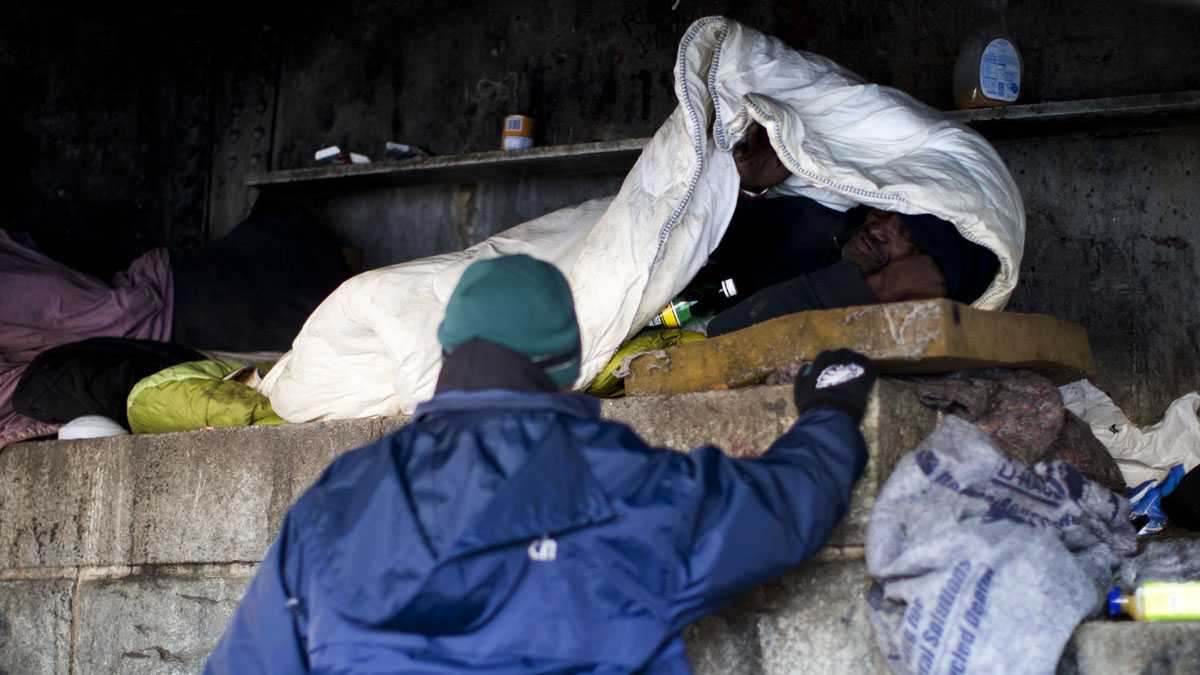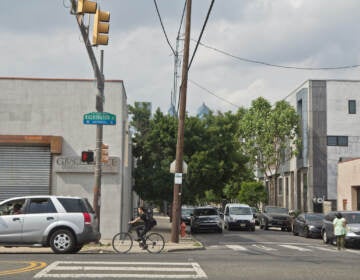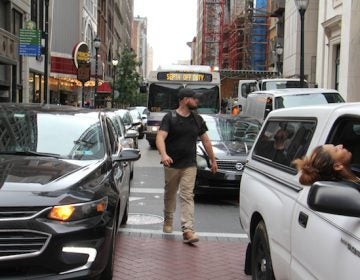Keystone Crossroads: Some Pa. cities’ laws against sleeping outside may be unconstitutional

At least 50 Pennsylvania municipalities legislate against sleeping or camping in public places.
The municipalities are among an untold number of places nationwide where officials should be on notice, some say, in light of the federal government’s recent statement of interest in a lawsuit filed against the local government in Boise. The Department of Justice’s filing says anti-camping ordinances are unconstitutional because they amount to criminalizing status (in this case, homelessness) — if they are enforced where there is no “adequate” shelter available.
Advocates celebrated the DOJ’s intervention in the case and expect a ruling later this month with wide-reaching consequences.
But there are major caveats, it seems.
Adequacy and impact
The DOJ filing brought national attention to this case, but the forthcoming ruling won’t set precedent for courts outside Idaho. (Judges in other states tasked with similar decisions can look to it, though. In fact, the DOJ is urging U.S. District Magistrate Judge Ronald Bush to enlist the reasoning used to roll back a ban on sleeping in cars in Los Angeles).
And setting aside the fact that this filing echoes others from two decades ago, the DOJ does not address some of the most common reasons cited by homeless people for being outside instead of in a shelter.
The DOJ says cities can’t punish people experiencing homelessness if there isn’t adequate shelter available.
That’s important: Despite an increase in available beds, more than 70 percent of U.S. shelters — and between 79 and 100 percent of Pennsylvania facilities — report being at or above capacity during point-in-time surveys taken each January, according to an analysis by Keystone Crossroads.
The DOJ document also says shelter options aren’t “adequate” if a person cannot access them due to a physical limitation or has exceeded their maximum stay limits.
But it leaves open questions about other scenarios, including some of the most commonly cited by people for choosing to be outside instead of in a shelter. Manysay they don’t want shelter that’s available to them because they feel unsafe, fear theft, or might have to participate in religious activities counter to their own beliefs. Addicts sometimes can’t comply with sobriety requirements. Past experiences might make certain circumstances intolerable for some (such as a veteran with post-traumatic stress disorder faced with staying in a congregated shelter, for example).And others’ criminal histories can prevent them from getting into shelters, according to Christy Zeigler, who heads Sunbury-based Haven Ministries.
What does this mean for people who decline to go to shelters ?
In its filing, DOJ declines to take a position on whether people should face penalties for opting to stay outside instead of at a facility where activities conflict with their religious beliefs. Plaintiffs in the Boise case say they should not face penalties; the defendant city’s officials disagree.
DOJ spokesman Kevin Lewis declined comment on the other scenarios.
Lewis also declined to comment on the DOJ’s plans to follow recommendations to help eliminate such laws by the National Law Center on Homelessness and Poverty: ensure that federal funding is not used to support unconstitutional laws penalizing people who sleep outside. .
WHYY is your source for fact-based, in-depth journalism and information. As a nonprofit organization, we rely on financial support from readers like you. Please give today.






